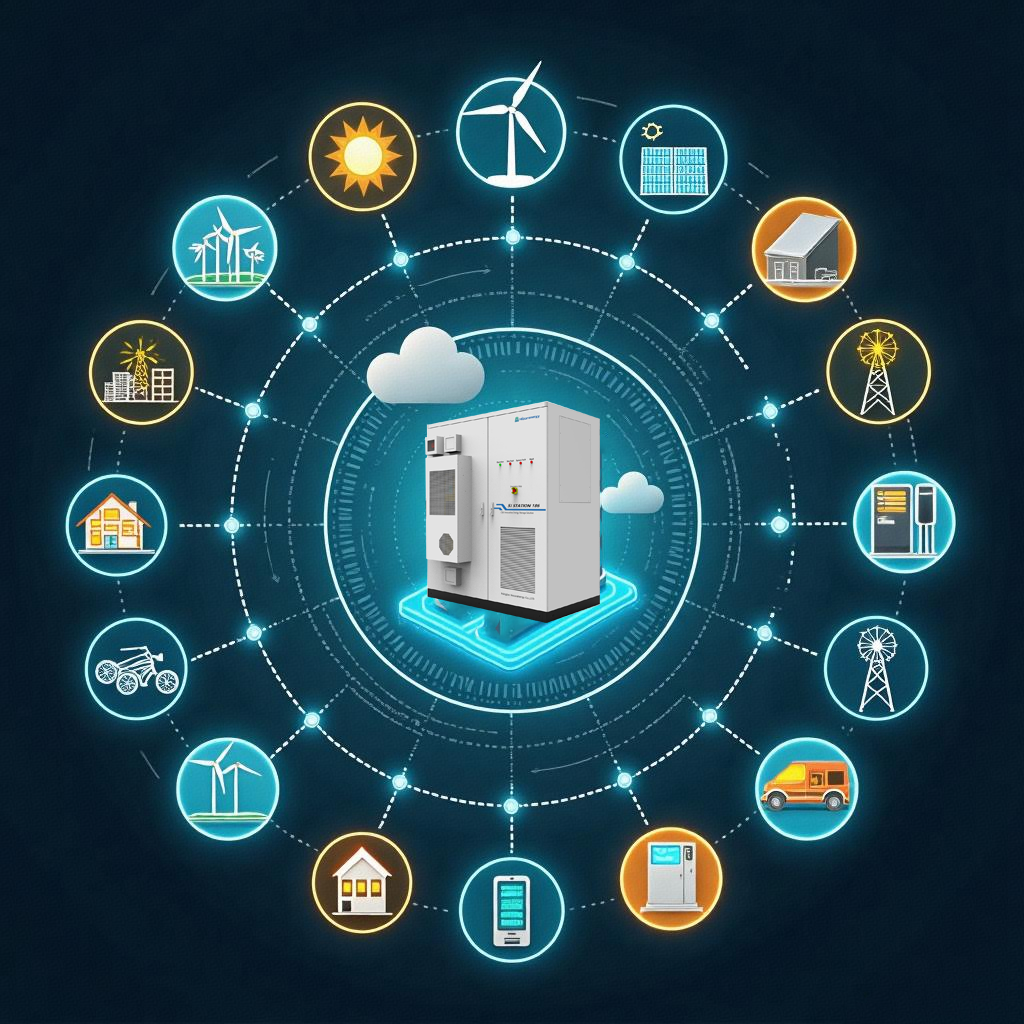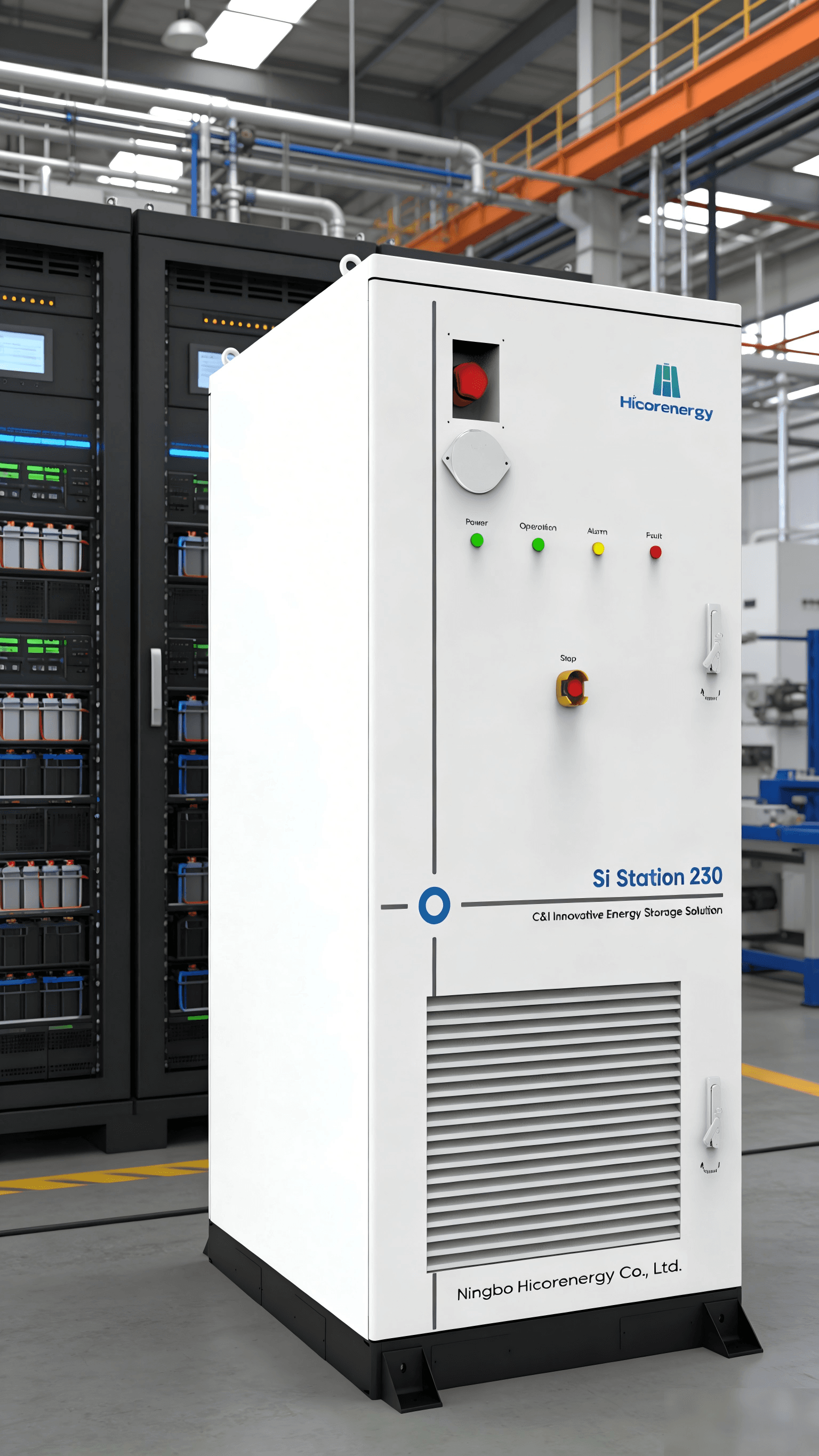
Liquid Cooling Battery Cabinets: Superior Performance and Efficiency for Demanding Environments
As the demand for large-scale energy storage systems grows, ensuring that these systems operate efficiently, safely, and reliably becomes increasingly important. Liquid cooling battery cabinets have emerged as a solution to address the challenges faced by traditional air-cooled systems. These systems provide superior thermal management, allowing them to handle high power demands in commercial and industrial energy storage applications.
In this article, we explore how liquid cooling outperforms conventional air-cooled battery systems, the unique advantages it offers, and the specific environments where liquid cooling battery cabinets excel.
What Makes Liquid Cooling Different from Traditional Battery Cabinets?
Traditional battery cabinets typically rely on air cooling systems to maintain optimal temperature ranges for the batteries. However, as energy storage systems increase in size and power, air cooling often proves insufficient to handle the heat generated by high-capacity batteries. Here’s why liquid cooling is becoming a preferred option:
-
Superior heat dissipation: Liquid cooling systems are far more efficient than air cooling at removing heat. Liquids, such as water or glycol-based coolants, absorb and transfer heat more effectively, ensuring the system stays within an optimal temperature range even during high-load conditions.
-
Consistent performance: Liquid-cooled systems can maintain a uniform temperature across all cells, preventing hot spots that could reduce the efficiency and lifespan of the battery. This uniform temperature management ensures that battery performance is maximized throughout the entire storage system.
-
More compact: Liquid cooling allows for higher energy densities in smaller footprints, meaning more energy can be stored in less space, which is ideal for applications with limited room for equipment, such as commercial rooftops or industrial installations.
Advantages of Liquid Cooling in High-Power Applications
1. Enhanced Battery Life
Problem: High temperatures can drastically shorten the lifespan of batteries by increasing wear and reducing the number of charge/discharge cycles a battery can undergo.
Solution: Liquid cooling systems actively regulate the temperature of the batteries, keeping them within the ideal range and preventing heat-induced degradation. This leads to longer battery life—often extending the operational lifespan by up to 30% compared to air-cooled systems.
Example Application: In solar farms or large commercial backup power systems, where batteries are constantly cycling, liquid cooling helps maintain consistent performance and reduces the need for premature replacements.
2. Higher Efficiency Under Load
Problem: Traditional air-cooled systems struggle to maintain performance under high load conditions, leading to energy losses due to overheating and inefficient cooling.
Solution: Liquid cooling actively removes heat, even during peak demand, allowing the battery to operate at optimal efficiency. This is especially important in industrial energy storage systems or off-grid applications where demand can fluctuate significantly, and efficient energy use is paramount.
Example Application: In industrial sectors like mining or telecom, where continuous, high-powered energy is required, liquid-cooled systems ensure that the power provided is stable and reliable, even in harsh environments.
3. Improved Safety and Risk Mitigation
Problem: Excessive heat can lead to thermal runaway, which may cause battery fires or system failure.
Solution: Liquid cooling systems provide precise temperature regulation, preventing thermal runaway by controlling the temperature at the battery’s core. They are equipped with redundant cooling loops to ensure continuous cooling even if one loop fails, which makes them ideal for high-risk environments where safety is critical.
Example Application: In data centers or critical infrastructure, where the loss of power can have catastrophic effects, liquid cooling offers the assurance of consistent temperature regulation, minimizing the risk of failure or damage due to overheating.
Ideal Environments for Liquid Cooling Battery Cabinets
While liquid cooling systems offer significant advantages, they are most effective when deployed in environments that demand high power output, reliability, and efficiency. These include:
1. Large-Scale Solar Farms
For solar energy storage systems that need to store large amounts of energy during the day and discharge it at night, liquid cooling ensures that the system operates efficiently throughout its lifecycle, regardless of external weather conditions.
2. Industrial Power Backup Systems
For industrial sites with continuous energy demands (such as factories, telecom sites, or warehouses), liquid-cooled battery cabinets can handle the constant charge and discharge cycles while keeping the system cool even in hot or fluctuating temperatures.
3. Remote Energy Systems
In off-grid locations, liquid cooling helps ensure energy storage systems perform optimally without the need for large, power-hungry air conditioning units. It is especially useful in areas where space is limited, and efficient cooling is critical to system operation.
Liquid Cooling Battery Cabinets: The Future of Energy Storage
As commercial and industrial energy storage needs continue to grow, liquid cooling battery cabinets are expected to become the go-to solution for large-scale deployments. Their ability to handle high-power loads, maintain system efficiency, and ensure long-term reliability positions them as a strategic choice for future-proof energy systems.
For EPC contractors, OEM distributors, and industrial energy service providers, adopting liquid cooling solutions enables them to offer scalable, safe, and efficient energy storage systems that meet the rising demand for renewable energy storage.
Explore Hicorenergy’s liquid cooling battery cabinets or contact us to learn more about our advanced energy storage solutions for commercial and industrial applications.







